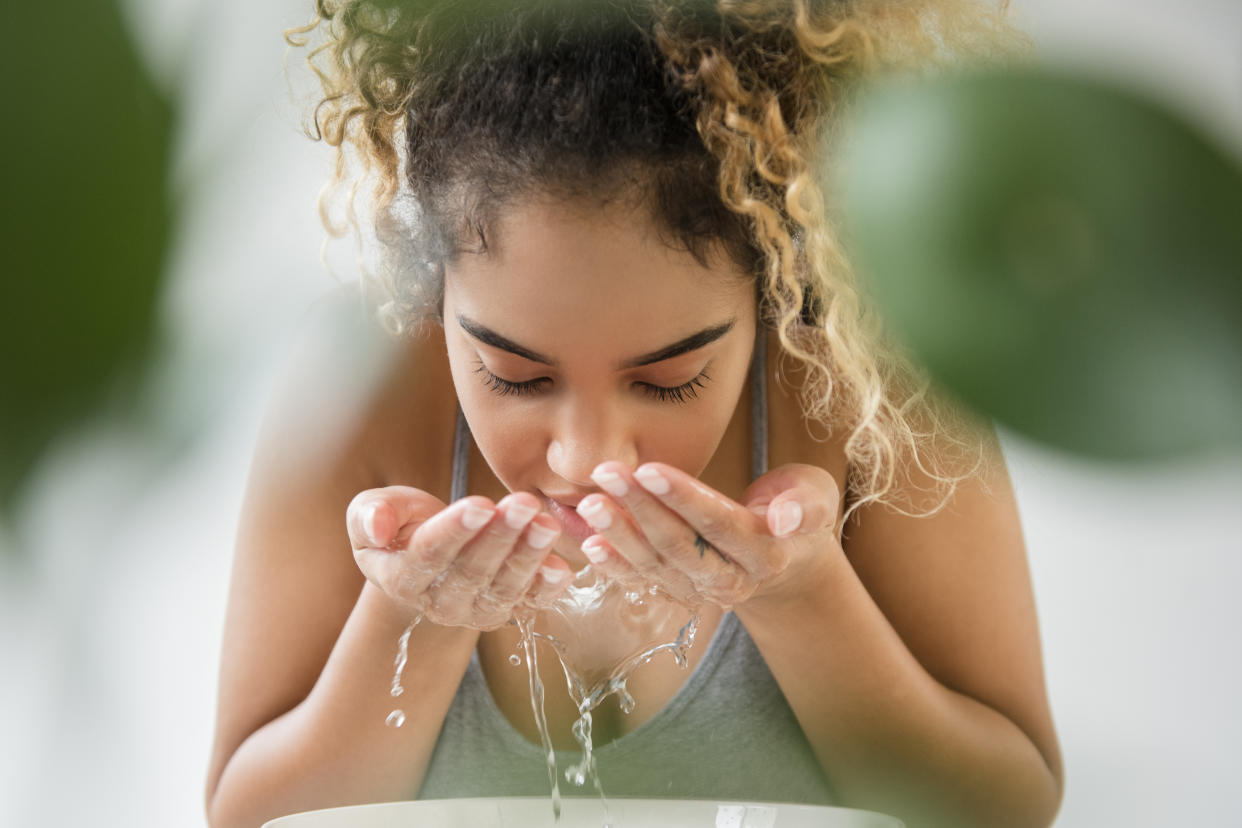Is it worth making the switch to clean beauty this year?

These days, you don’t need to be a chemistry specialist or a dermatologist to care about the ingredients in your makeup, skincare or hair products. As the ever-evolving beauty biz continues to badmouth controversial ingredients like phthalates, sulphates and parabens, I ask myself: What can “clean” beauty actually do for me? While the idea sounds like a safe bet, the price tag can come as a shock — just look at brands like Drunk Elephant, Tatcha, Caudalie and Tata Harper. According to a 2019 survey conducted by Harper’s Bazaar, nearly 50 per cent of women are already using clean beauty products, with more than 60 per cent of those women willing to splurge on items.
So, is it worth making the switch to a completely clean and green beauty routine? Absolute not, says Lina Jakubus, Chemist M.S., PA-C.
“Clean beauty is a new buzzword to clean out your wallet,” says Jakubus. “It’s used to fool the gullible that products are safer, or healthier. They’re nothing better than what’s already in the marketplace. We already have safe cosmetics. Clean means anything you want it to mean.”
A post shared by LePamperedPig• #mythbuster (@lepamperedpig) on
FDA scientists found no negative link between parabens, such as methylparaben, propylparaben, butylparaben and ethylparaben, and human health.
“Parabens are a family of related chemicals that are commonly used as preservatives in cosmetic products. Preservatives may be used in cosmetics to prevent the growth of harmful bacteria and mould, in order to protect both the products and consumers.”
“Product ingredient labels typically list more than one paraben in a product, and parabens are often used in combination with other types of preservatives to better protect against a broad range of microorganisms.”
A post shared by LePamperedPig• #mythbuster (@lepamperedpig) on
Environmental impact
The term “clean” continues to be ill-defined in the cosmetics world. Rather than looking at clean beauty as a simple solution for you, Jane Nugent, Sephora Canada’s senior VP of merchandising, suggests trying to understand its other elements.
“Our clean criteria goes beyond common marketplace terms such as ‘natural, organic or green,’ and offers the most innovative products and brands, education on ingredients and a shoppable, curated omni-channel destination,” says Nugent. “Consumers have become more aware of their beauty products and the impact that they may have on the environment.”
Aside from “free-from” marketing, clean beauty products are also associated with conscious-living sustainability and with reduced environmental impact.
If you’re looking to purchase products with recyclable packaging this New Year, you may want to consider clean beauty.
“As the clean movement grows, Sephora continues to add new brands and identify even more chemicals to reduce and eliminate,” says Nugent. “This year, our ‘formulated without’ list went from 13 excluded ingredients to 53.”
All skincare, makeup and hair brands with the Clean at Sephora seal have less than one per cent synthetic fragrances and are free of ingredients that may be deemed dangerous to your health.
Sephora’s “formulated without” list
sulfates SLS and SLES
parabens
formaldehydes
formaldehyde-releasing agents
phthalates
mineral oil
retinyl palmitate
oxybenzone
coal tar
hydroquinone
triclosan
triclocarband
“For those looking to incorporate vegan and clean products in their everyday routines, we recommend coming into the Sephora store and meeting with a Beauty Advisor to determine what routine is best for you!”
Let us know what you think by commenting below and tweeting @YahooStyleCA! Follow us on Twitter and Instagram.


